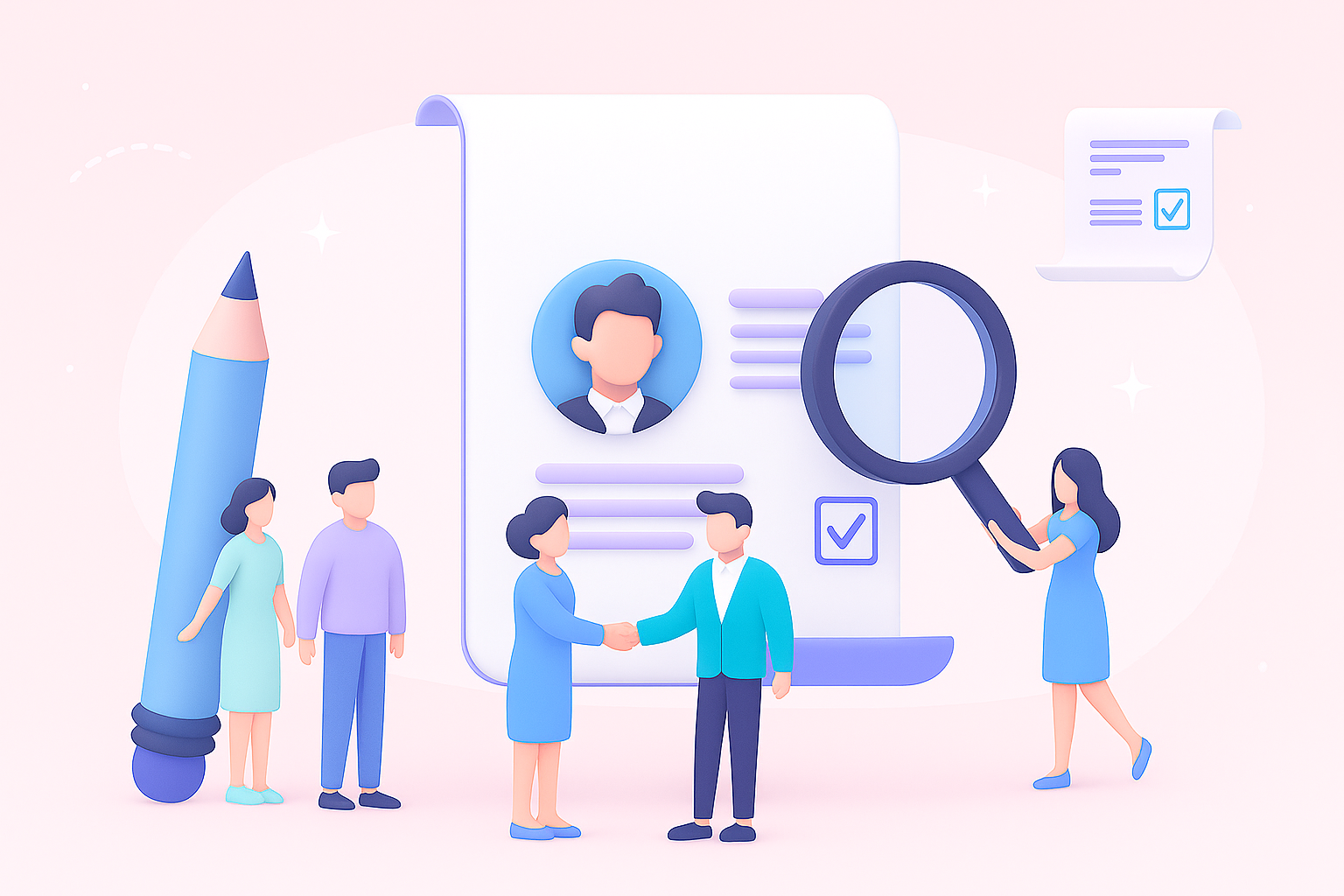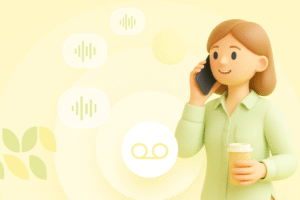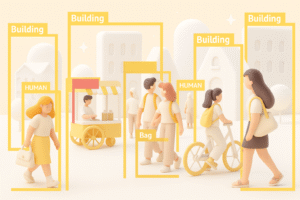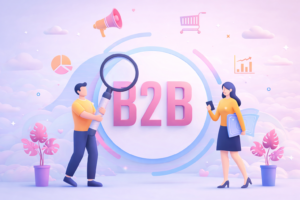AI is evolving in the recruitment sector. By automating many aspects of the hiring process, artificial intelligence continues to revolutionize the candidate experience in 2025.
From candidate screening to a bot-led interview process, AI is quickly becoming a powerful tool for recruiters.
AI-powered hiring solutions streamline the recruitment process and make it easier for hiring managers to match essential skills with the best-fit candidates.
The question is, could AI take candidate screening one step further with soft skills checks? Stick with us as we jump into the growth of AI in the hiring industry and explore the future of soft skills analysis.
Unpacking the Growth of AI in Hiring
In 2025, a whopping 73% of recruiters now use AI at some point during the hiring process.
By integrating automated tools into their strategy, recruitment teams now rely on AI for candidate screening, crafting job descriptions, and automating the interview process.
At every stage of the hiring process, AI is streamlining the candidate experience. It’s no surprise that 73% of those surveyed cited the adoption of AI in recruitment as a direct business priority.
Research by the Access Group on the use of AI in recruitment revealed that recruiters cited reduced workloads as the key benefit of introducing AI in the sector, with a further 46% claiming that AI helped them generate ideas during the hiring process.
As AI continues to prove its efficiency in evaluating hard skills, automating employee management, and assisting recruiters, the adoption of AI assistants is booming within the HR industry.
However, AI’s impact on soft-skill research remains a grey area.
While AI can process enormous amounts of data, can it understand softer skills like empathy, teamwork, and leadership as well as a traditional recruiting team? Let’s find out.
Can AI Identify Soft Skills in Job Applications?
In 2025, 72% of employers prioritize hard skills and soft skills equally during the application process.
While technical skills and experience-led data are easier to quantify, many AI-powered tools are now being used to assess soft skills like communication and teamwork during the hiring process.
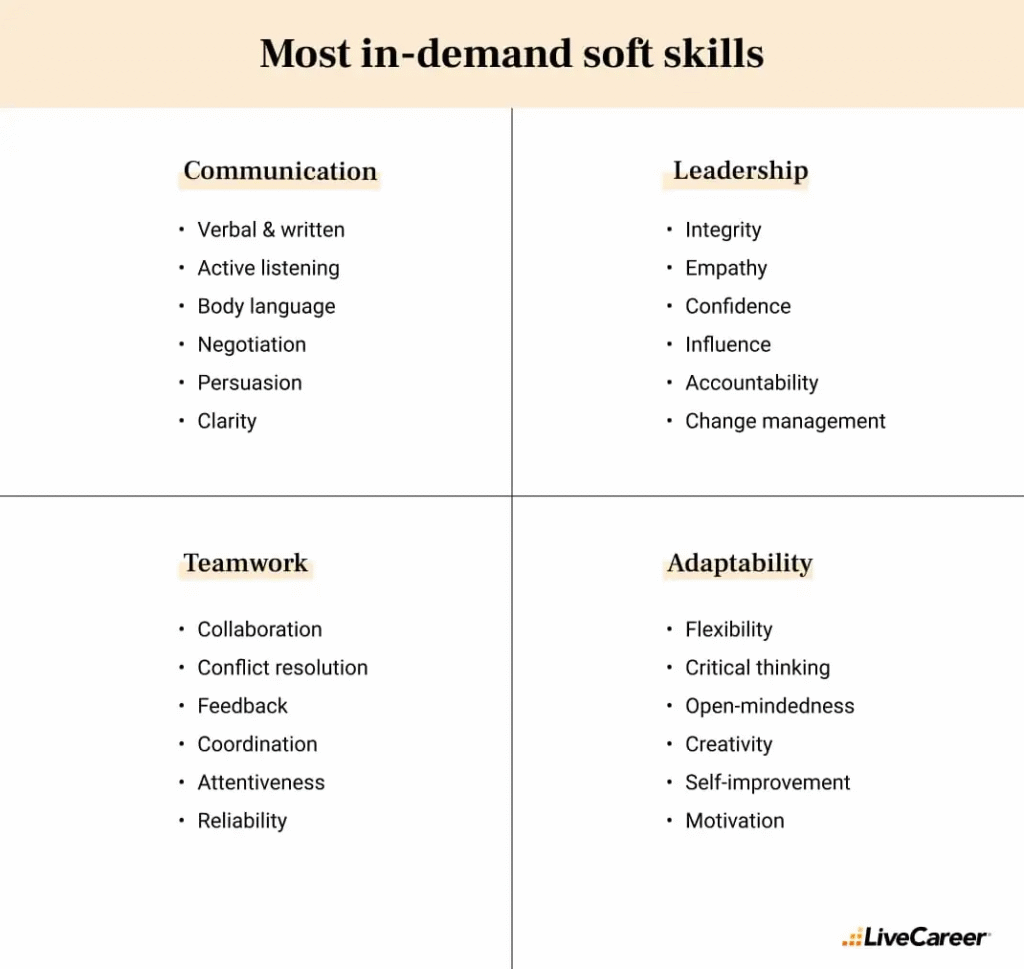
AI solutions are becoming smarter and can now be used to uncover those key personal traits that are often hidden between the lines of a candidate’s CV and cover letter.
The question is, how does this work in practice?
Context-Based Language Analysis
Instead of simply scanning a candidate application for keywords, AI tools can also evaluate the content in which those terms appear.
For example, if a candidate mentions that they “have good problem-solving skills” this remains vague, however if their application includes: “I identified a recurring bottleneck in our customer onboarding process and implemented an automated system that reduced setup time by 35%”, AI systems recognise that the statement is rich in context, demonstrating analytical thinking and leadership skills that can be conveyed back to the recruiter.
AI hunts for action-oriented language, rather than just buzzwords. With the ability to scan for content-rich soft skills, AI-powered hiring tools can help narrow down top candidates by how well they would adapt to the company’s core team values, as well as the role itself.
Behavioral and Video Analysis
If your interviews are recorded or held on platforms like Zoom or Google Meet, AI integrations can help pick up on subtle details that recruiters may miss when conversing with a candidate.
By scanning videos for behavioral traits, non-verbal cues, facial expressions, and body language, AI tools can help gauge a candidate’s level of confidence and communication style.
AI then consults its algorithm to predict how well a candidate’s soft skill set might match company culture and the organization’s needs moving forward.
Pattern Recognition
AI models are constantly learning from new data. When it comes to tracking and recognizing soft skills in an application/interview, AI feeds on the data from successful employees and identifies the patterns associated with top performers.
This model can then be used to predict what soft skills to look out for during the recruitment process that will best match the required traits.
How AI Eliminates Soft Skill Biases
AI is currently transforming soft-skill assessment. With the ability to identify context-rich skills in the CV to analyzing behavior during an interview, artificial intelligence is helping companies discover best-fit candidates for the role and the company culture.
As humans, we have natural biases. Some of us are more leadership-driven, while others are classic team players.
These types of personality-based biases can impact the hiring process, as we are more likely to select a candidate based on ‘who we like’ rather than who we need.
AI eliminates these biases, evaluating candidates on their responses, body language, and behavior. This levels the playing field, ensuring that each candidate’s soft skills are screened fairly.
The Challenges of AI in Evaluating Soft Skills
AI undoubtedly presents exciting possibilities in the soft-skill department, but we’re still in the early stages of adoption.
Like any technology-based aid, AI tools do present some ethical challenges for the recruitment sector:
- Contextual Misunderstanding: AI-powered recruitment models thrive off of context, but what happens when that changes from setting to setting? For example, a candidate may thrive in one section of the interview but struggle in another. AI struggles to understand those complex interpersonal dynamics, and could struggle to identify soft skills accurately.
- Algorithmic Bias: While AI is used to eliminate bias in the hiring world, it’s important to remember that AI models are trained on historical data. If past hiring processes favored certain types of candidates, AI algorithms will follow suit.
- Lack of Human Intuition: As humans, we rely on intuition to read between the lines. AI naturally struggles with this. For example, as humans, we understand that a pause could mean a candidate is gathering their thoughts or pausing to catch their breath, but AI may interpret that same pause as a hesitation, in turn marking the candidate down.
Adoption is Positive Overall
Despite the challenges, the adoption of AI in the recruitment sector is positive.
According to experts at Vorecol, AI is drastically reshaping how soft skills are assessed, cutting hiring times by 75% and boosting retention rates by 50%.
As we step into a new era of AI-powered recruitment, the best companies will combine data-led technology with human intuition.
AI is a brilliant tool to leverage during a soft-skill assessment, but it is not yet qualified to have the final say.

